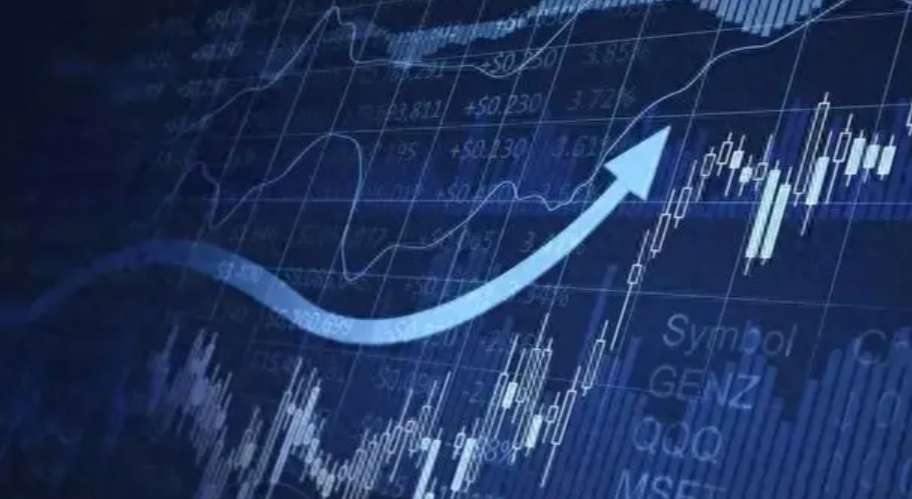UK Economy Stalls Amid High Rates
Advertisements
The United Kingdom is currently navigating treacherous economic waters, with the shadows of recession looming ominously as the fourth quarter of the year approaches. According to economists, the fiscal measures initiated by Chancellor Rachel Reeves, particularly the increase in taxes, have contributed to a contraction in the country's Gross Domestic Product (GDP) by 0.1% in the third quarter. Such data paint a troubling picture as the Bank of England has signified that there is a 40% likelihood that the UK has already slipped into a technical recession, which is defined by two consecutive quarters of negative growth. If confirmed, this will mark the nation's second brush with recession in over a year.
As these economic indicators retract amidst worsening conditions, the challenges facing Chancellor Reeves become increasingly pronounced. The Office for Budget Responsibility (OBR) is expected to align its predictions with the Bank of England's downward revisions, which may force the Chancellor to make tough decisions regarding cuts to essential public services or welfare programs in order to adhere to fiscal regulations. The uncertainty surrounding growth and the pressure from rising living costs pair together to increase the complexity of the situation.
This predicament is underscored by a critical observation: while the UK's government borrowing costs are similar to those of a rapidly expanding US economy, the UK's growth trajectory resembles that of the beleaguered Eurozone. The European Central Bank's decision to maintain interest rates significantly lower than those in the UK further complicates efforts to stabilize public finances. Viewer confidence in the sustainability of government debt remains shaken as the ratio of UK government debt to the economy reaches its highest level since the early 1960s.

Calculations by EY's ITEM Club indicate that the UK's borrowing costs relative to nominal growth rates surpass those of most other developed economies. This peculiarity raises alarms, particularly as neglecting to address the substantial primary deficit could exacerbate market trepidation regarding public sector debt sustainability. This primary deficit refers to the government's borrowing needs to fund expenditures, excluding the costs associated with servicing existing debt.
Anticipation builds for the upcoming release of GDP data for the fourth quarter by the UK's Office for National Statistics, which is set to reveal further economic insights, including December's forecasts. Research by Bloomberg Economics suggests a stagnation in output for that month, with the economy failing to grow since the Labour Party assumed power seven months ago. The additional burden of a £40 billion tax increase, alongside the threat that U.S. tariffs pose to the global economy, continues to plague both consumers and businesses alike.
On a cautiously optimistic note, economists Dan Hanson and Ana Andrade speculate that government expenditure may help facilitate a slight recovery in the economy during the first quarter. However, they have not ruled out the possibility of entering a recession. Their analysis indicates that recent disappointing performance could persist, leading to a technical recession over the winter months, a scenario that would prompt the central bank to reassess its current path of gradual interest rate reductions.
Adding to the mixed economic signals, the Bank of England's recent announcement of a third interest rate reduction since August has established a rather pessimistic outlook in the market. The central bank has forecasted a contraction of 0.1% for the fourth quarter and has halved its predictions for growth in 2025 to a mere 0.7%. Concurrently, inflation is projected to exceed earlier expectations, significantly driven by the resurgence of energy prices. Bank Governor Andrew Bailey hinted at a continued "gradual and cautious" approach to further rate cuts, with expectations settling at just two to three more decreases for the remainder of the year.
For the Labour Party to deliver on its promises to repair public services and enhance investment, economic growth is paramount. Recently, Chancellor Reeves committed to major infrastructure projects, including the construction of new wind turbines, roads, airports, railroads, and trade agreements, aimed at rejuvenating the sluggish economy. However, economists have cautioned that such initiatives require considerable time to realize tangible impacts. As the challenges accumulate, the OBR is poised to evaluate the economic context in preparation for her Spring Statement scheduled for March 26.
An alarming report emerged recently indicating that the fiscal watchdog has revised its growth projections downward, revealing that Reeves will likely confront a modest deficit. A downgrade in credit ratings and volatility in the bond market have exacerbated borrowing costs since October, erasing the slim £9.9 billion surplus that was anticipated under the rule necessitating that day-to-day spending must be funded through taxation.
In an environment fraught with high interest rates and stagnant growth, the Chancellor is left grappling with inevitable cuts to spending, having temporarily shelved tax hikes due to fierce opposition from businesses following her budget proposals.
Key indicators such as the yield on UK ten-year government bonds, hovering around 4.5%, align more closely with American rates, yet the disparity in growth rates between the two nations is striking. Last year, buoyed by heightened consumer sentiment, the US economy grew by nearly 3%, whilst the Bank of England forecasts growth for the UK at a meager 0.7%, mirroring the stagnation of the Eurozone, with no anticipated recovery until 2026 at the earliest.
During a recent House of Lords hearing regarding the UK's debt situation, economist Peder Beck-Friis from Pacific Investment Management Company (PIMCO) pointed out, "A prominent variable in the UK's economic equation is R minus G (interest rate minus growth rate), which we continuously discuss. Only Italy has higher borrowing costs relative to its growth rate compared to the UK." This statement serves as a stark reminder of the UK's precarious position in the global economic landscape, accentuating the urgency for effective policy measures that can bolster growth while ensuring fiscal responsibility.
Post Comment